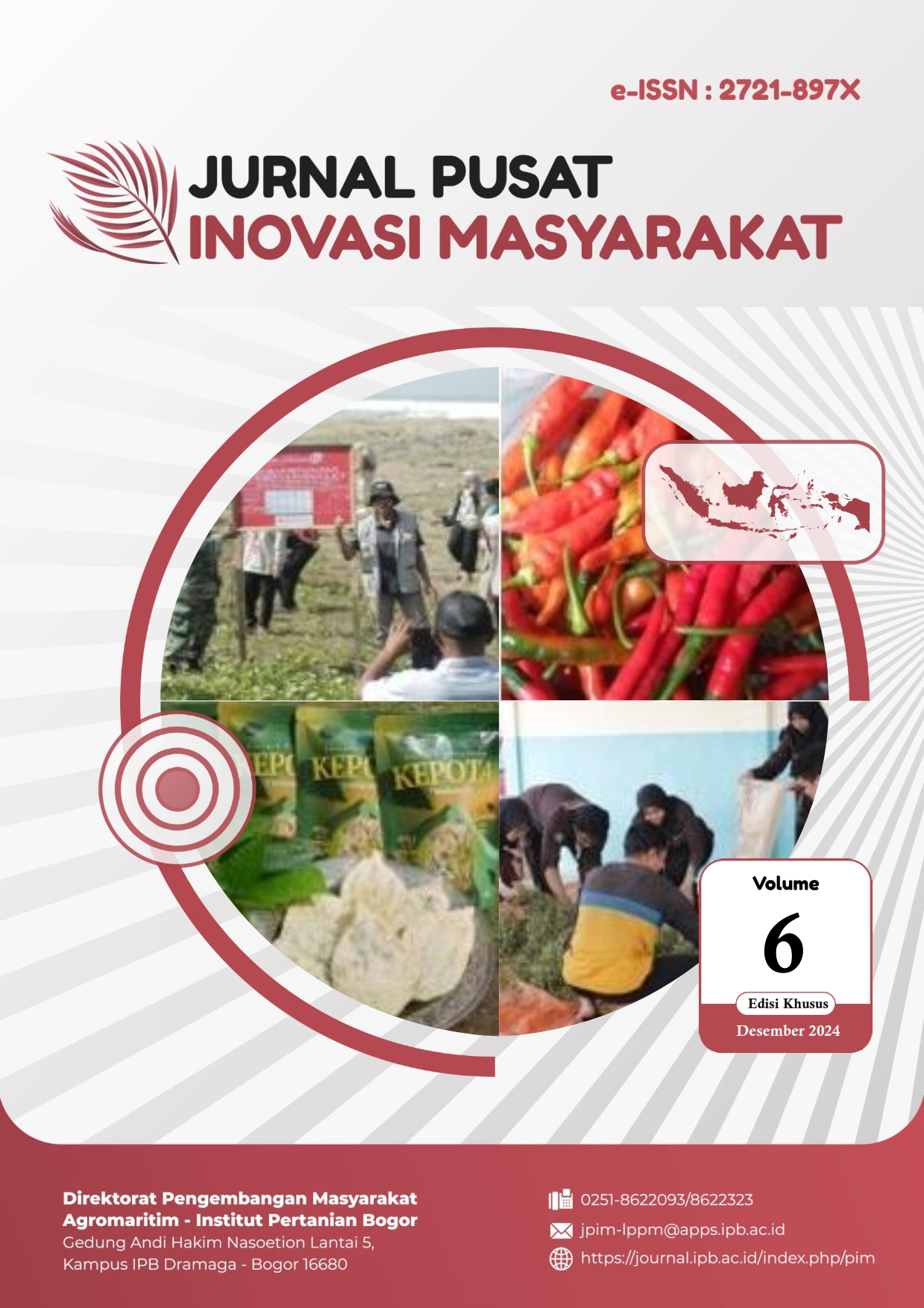Efektivitas dan Evaluasi Konsep SDGs pada Sektor Formal (Studi Kasus: Sekolah Phatnawitya Thailand)
Abstract
Education is a fundamental pillar in achieving the Sustainable Development Goals (SDGs), and Thailand, as a Southeast Asian nation, demonstrates its commitment to these goals by starting within formal institutions like schools, guided by national strategies. This community service research aims to assess Thai students' understanding of SDG concepts, identify barriers to comprehensive learning, and propose strategies for sustainable implementation of SDGs in schools. Using a mixed-method approach that includes phenomenology, causal loop diagrams, and fishbone analysis, the research highlights key findings: participatory and contextual educational interventions effectively enhance students' SDG awareness and engagement, while interconnected challenges, such as limited discussions in schools, insufficient teacher training, and inadequate access to information and educational resources, hinder progress. To address these issues, the study recommends improving teacher training and enhancing access to high-quality educational materials as critical strategies to break the cycle of unawareness among students in Yala, Thailand. The overarching conclusion underscores that participatory and contextual education, supported by strong teacher capacity and resource availability, is essential for sustainable success in embedding SDG concepts within formal education.
Downloads
References
Adyatama RP. 2021. Penerapan kurikulum pembelajaran ips di thailand. OSF Preprints, [diakses 2024 Agustus 4]. https://www.researchgate.net/profile/Rama-Putra-Adyatama-2/publication/352210850_PENERAPAN_KURIKULUM_ PEMBELAJARAN_IPS_DI_THAILAND/links/60bf0611a6fdcc22eae8cb05/PENERAPAN-KURIKULUM-PEMBELAJARAN-IPS-DI-THAILAND.pdf. https://doi.org/10.31219/osf.io/kv5wp
Aikens K, McKenzie M, Vaughter, P. 2019. Environmental and sustainability education policy research: A systematic review of methodological and thematic trends. Environmental Education Research. 25(10): 1440‒1464.
Amedi AM. 2018. Analisis politik hukum pendidikan dasar di indonesia demi menyongsong era tujuan pembangunan berkelanjutan (sustainable development goals/sdgs). Padjadjaran Law Review [diakses 2024 Agustus 05]. 6(1): 43‒58. https://jurnal.fh.unpad.ac.id/index.php/plr/article/view/389
Aminullah A, A’yun RR, Maulina A. 2023. Mewujudkan pendidikan berkualitas untuk meningkatkan sdm handal dalam upaya mencapai sdgs 2045 di sd negeri 01 besuk. Pandalungan: Jurnal Pengabdian kepada Masyarakat. 2(1): 93‒101. https://doi.org/10.62097/pandalungan.v2i1.1443
Biberhofer P, Rammel C. 2017. Transdisciplinary learning and teaching as answers to urban sustainability challenges. Environmental Education Research. 24(9): 1377‒1395.
Bukhori I, Permatasari YD, Afida I. 2023. Mewujudkan sustainable development goals (sdgs) melalui eskalasi program pendidikan berkualitas di desa kepanjen. Pandalungan: Jurnal Pengabdian kepada Masyarakat. 1(2): 154‒160. https://doi.org/10.62097/pandalungan.v1i2.1415
Creswell JW. 2013. Qualitative Inquiry & Research Design: Choosing Among Five Approaches (3rd ed.). SAGE Publications.
Giangrande N, White RM, East M, Jackson R, Clarke T, Peukert D, Saloff Coste M. 2019. A competency framework to assess and activate education for sustainable development: Addressing the UN Sustainable Development Goals 4.7 challenge. Environmental Education Research. 25(9): 1270‒1288. https://doi.org/10.3390/su11102832
Giddens A. 1991. Modernity and Self-Identity: Self and Society in the Late Modern Age. Stanford University Press.
Irfan M, Saleem S. 2021. Digital tools in education for sustainable development: A comparative study of higher education in Asia and Europe. Cogent Education. 8(1): 1907595.
Ishikawa K. 1982. Guide to quality control. Edisi ke-1. Asian Productivity Organization. Jepang.
Laudia SM, Puspita AMI, & Mariana N. 2023. Studi komparasi metode pengajaran di sekolah dasar indonesia dan sekolah dasar thailand. Journal on Education. 6(1): 10738–10746.
Leicht A, Heiss J, Byun WJ. 2018. Issues and trends in Education for Sustainable Development. UNESCO Publishing.
Mezirow J. 2000. Learning as Transformation: Critical Perspectives on a Theory in Progress. Jossey-Bass.
Murni S. 2024. Perbandingan sistem pendidikan thailand dan indonesia: sebuah studi literatur. Insan Cendekia: Jurnal Studi Islam, Sosial dan Pendidikan. 3(1): 11‒22.
Nurfatimah SA, Hasna S, Rostika D.2022. Membangun kualitas pendidikan di Indonesia dalam mewujudkan program Sustainable Development Goals (SDGs). Jurnal Basicedu. 6(4): 6145‒6154. https://doi.org/10.31004/basicedu.v6i4.3183
Phanthuwongpakdee N, Intaprasert P, Gongkaew C, Bunnag C, Wichachai S, Soontornthum T. localizing sdgs in thailand: towards a more inclusive national science, research, and innovation (sri) plan. Environ. Sci. Proc. 2022, 15, 15. https://doi.org/10.3390/environsciproc2022015015
Piaget J. 1977. The Development of Thought: Equilibration of Cognitive Structures. Viking Press.
Senge PM. 1997: The fifth Discipline Fieldbook. 2nd edition. New York: Doubleday
Sholahuddin, Sadari. 2024. Sustainable development goals (sdgs) dan indonesia maju: dakwah tasawuf sebagai model moderasi kebangsaan. Reslaj: Religion Education Social Laa Roiba Journal. 6(3): 941‒949. https://doi.org/10.47467/reslaj.v6i3.1042
Sterman J. 2000: Business Dynamics. Systems thinking and modelling for a complex world. Boston: Irwin McGraw-Hill.
UNESCO. 2015. Global Monitoring Report: Education for All 2000‒2015: Achievements and Challenges. UNESCO Publishing.












